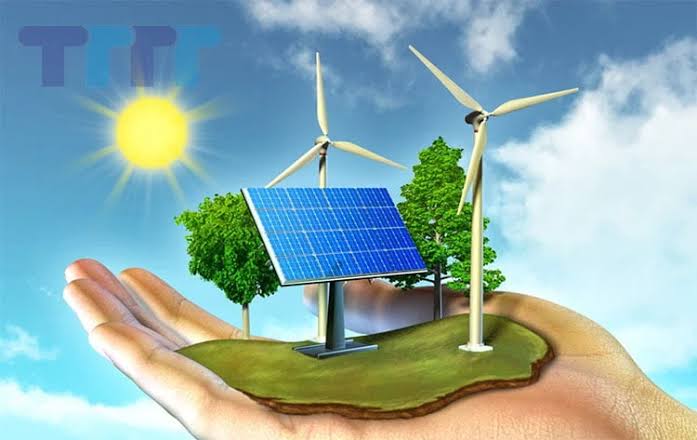In today’s increasingly climate-conscious world, the push toward renewable energy has evolved from a progressive ideal into a global necessity. As of July 2025, renewable energy sources like solar, wind, hydro, geothermal, and biomass are no longer fringe alternatives—they are now cornerstones of the global energy strategy. From reducing greenhouse gas emissions to strengthening energy independence, the benefits of renewable energy are wide-ranging, impactful, and essential for long-term sustainability.
Reducing Environmental Impact
One of the most compelling benefits of renewable energy is its minimal environmental footprint. Unlike fossil fuels, which release large amounts of carbon dioxide and other harmful pollutants, renewables generate electricity with little to no emissions. This directly contributes to slowing climate change and improving air and water quality.
Solar panels, wind turbines, and hydropower systems produce energy without burning fuel. That means no smog, acid rain, or toxic by-products are released into the atmosphere. In countries where pollution is a major health concern, such as India, China, and even parts of North America and Europe, renewable energy is proving vital in curbing health-related issues caused by dirty air.
Energy Independence and Security
Renewable energy offers countries a path toward energy sovereignty. By tapping into local and natural resources—sunshine, wind, rivers—nations can reduce their reliance on imported oil, coal, or natural gas. This insulates them from global energy price shocks, geopolitical tensions, and supply chain disruptions.
For instance, European countries that were heavily dependent on Russian gas prior to 2022 have accelerated investments in renewables to protect their energy security. Similarly, in Africa and South America, decentralized solar and wind systems are allowing remote communities to access power without needing connection to unstable national grids.
Long-Term Cost Efficiency
Although the initial cost of setting up renewable energy infrastructure can be high, it often proves more affordable in the long run. Once systems like solar panels or wind turbines are installed, they require minimal maintenance and no fuel costs. Over time, this leads to significant savings on energy bills—both for governments and consumers.
Thanks to technological advancements and increased demand, the cost of solar photovoltaic (PV) panels has dropped by over 80% in the last decade. As of 2025, wind and solar energy are now cheaper per kilowatt-hour than coal or natural gas in many parts of the world. In fact, renewable energy is now the most cost-competitive source of new power generation globally.
Job Creation and Economic Growth
The renewable energy industry is a powerful engine for job creation. It supports a wide variety of employment opportunities—from manufacturing and installation to research, maintenance, and policy development. According to the International Renewable Energy Agency (IRENA), the global renewable energy sector employed over 14 million people by the end of 2024, with projections continuing to rise through 2030.
Jobs in renewables also tend to be more geographically diverse. Unlike fossil fuel operations that are concentrated in specific regions, renewable energy projects are often decentralized, creating local employment in both urban and rural communities.
Enhancing Public Health
Traditional power generation from coal and oil contributes significantly to air and water pollution, leading to respiratory illnesses, cardiovascular diseases, and even premature death. Switching to clean energy sources substantially reduces exposure to these pollutants.
In cities and industrial zones where smog and soot once dominated, the transition to renewable energy has already shown measurable improvements in public health metrics. This reduces the economic burden on healthcare systems and improves overall quality of life.
Supporting Innovation and Technological Progress
The push for renewable energy has spurred rapid innovation in storage solutions, grid modernization, and energy efficiency. Battery technology, for instance, has made tremendous strides, enabling better storage of solar and wind power for use during low-production hours.
Smart grids, AI-driven energy management systems, and blockchain-based energy trading platforms are all byproducts of the renewable revolution. These technologies not only optimize energy usage but also pave the way for more transparent and democratic energy systems.
Renewable Energy and Climate Commitments
Countries around the world have pledged to meet the climate targets set under the Paris Agreement, aiming to limit global warming to 1.5°C. Achieving this goal requires drastic reductions in carbon emissions—and renewable energy is the most direct and scalable solution.
In Canada, for example, over 80% of the country’s electricity already comes from renewables, mostly hydro. Meanwhile, nations like Chile, Kenya, and Germany are reaching record highs in solar and wind adoption. Global cooperation around climate finance and green infrastructure is making it easier for developing nations to transition to clean energy as well.
Decentralization and Energy Access
Renewable energy allows for decentralized power generation, which is especially valuable in remote or underserved areas. Microgrids, solar home systems, and small-scale wind farms are providing power to rural schools, hospitals, and homes that were previously without access to electricity.
In sub-Saharan Africa and parts of Southeast Asia, these technologies are closing the energy access gap, enabling education, entrepreneurship, and better healthcare delivery. This aligns with the United Nations Sustainable Development Goal 7: Affordable and Clean Energy for All.
A More Sustainable Future
Perhaps the greatest benefit of renewable energy is its role in ensuring a sustainable future. By reducing reliance on depleting fossil fuels, conserving biodiversity, and promoting equitable economic growth, renewables support both environmental and social sustainability.
For future generations, the shift to renewable energy means a more stable climate, cleaner resources, and a world less burdened by pollution and ecological collapse. It is not just an environmental imperative—it is a moral and economic one too.
Conclusion
As we stand in mid-2025, the evidence is clear: renewable energy is no longer just a hopeful alternative—it is the cornerstone of a resilient, equitable, and thriving future. Its benefits ripple across every aspect of modern life: from cleaner air and job creation to energy independence and technological innovation.
Investing in renewable energy isn’t just about fighting climate change; it’s about building a world where prosperity, health, and progress are within everyone’s reach. And the time to act is now.



